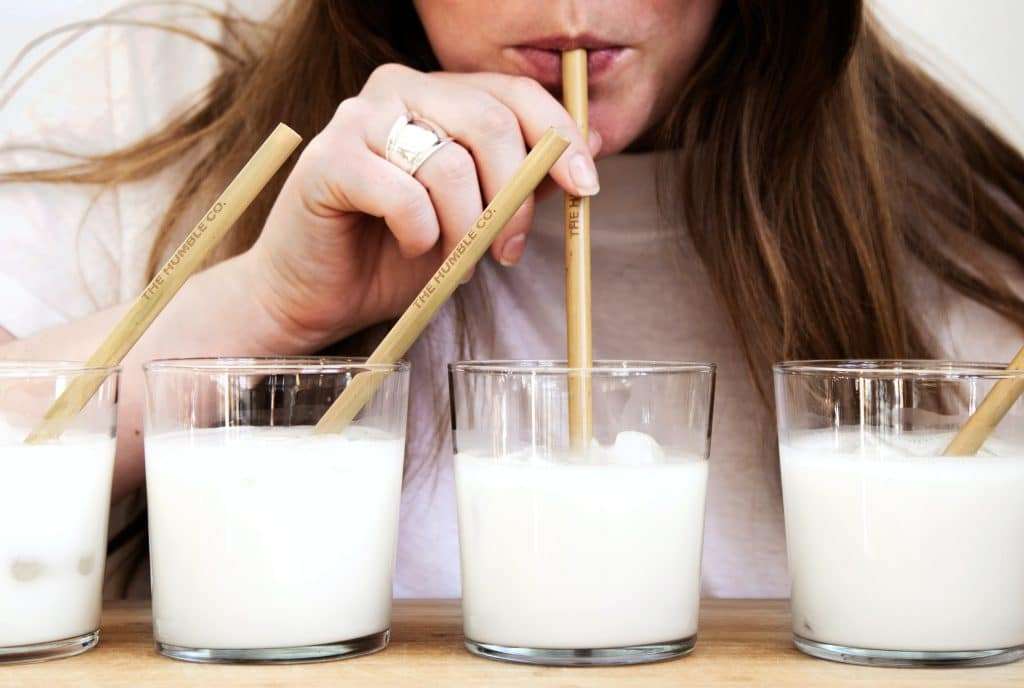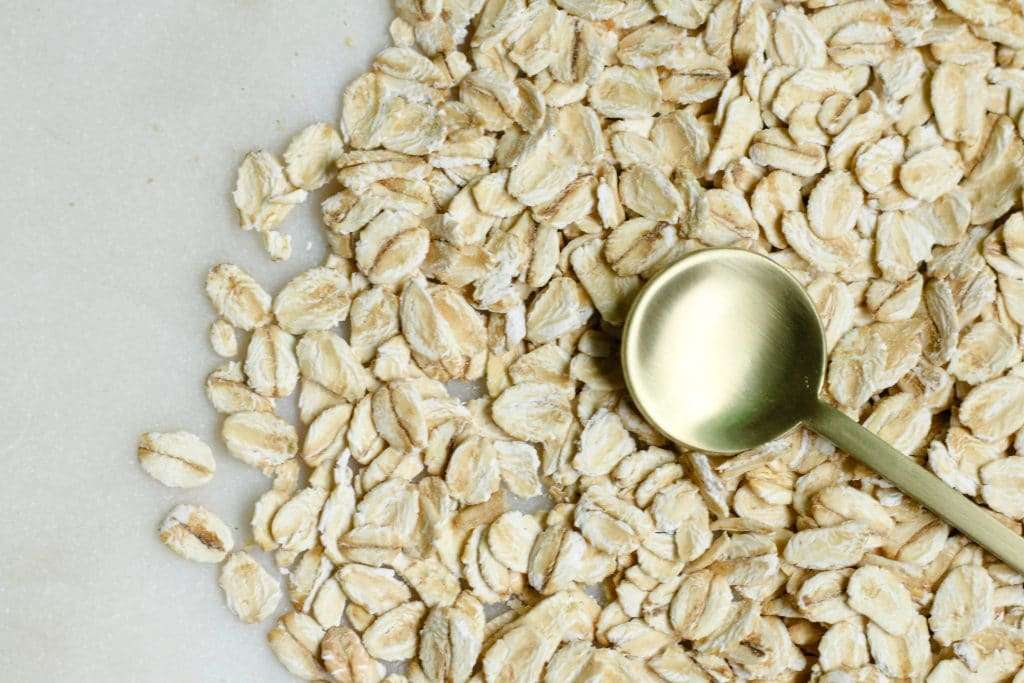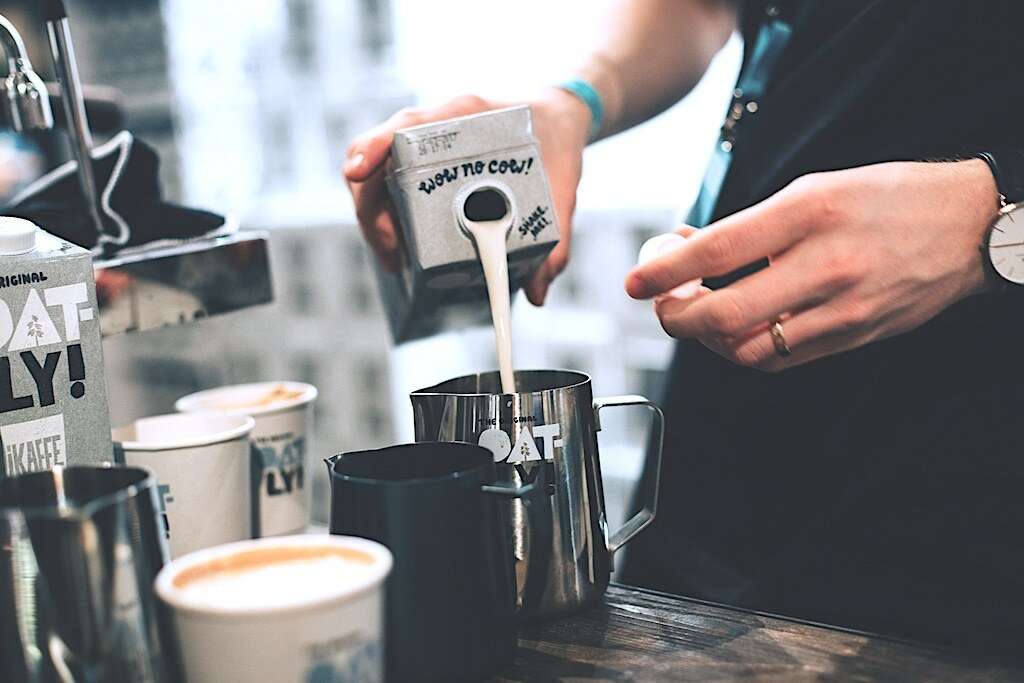As consumers — particularly younger people — turn to oat milk in droves, will the dairy cow eventually become redundant?
Growth in the alternative milk sector has exploded in recent years, far outpacing dairy’s growth, with market research data suggesting consumers around the world are embracing plant milk like never before.
Among the reasons cited for the switch are an increase in dairy milk allergies and rising interest in plant-based nutrition. Further factors, in the form of the growing urban population, rising disposable income, increasing diabetic population globally, and rising concerns regarding food safety are also boosting the demand for alternative milk.

One particular beverage has reaped the benefit of this push towards plant-based over the last year or so: oat milk. A recent market forecast report by Grand View Research predicted that the global oat milk market, valued at $2.23 billion in 2020, will reach $6.45 billion by 2028, growing at a compound annual growth rate (CAGR) of 14.2 percent.
According to the forecast: “In the buoyant plant-based milk space, the demand for oat milk is increasing owing to oats being more sustainable than their counterparts such as almonds, soy, and coconut. Furthermore, the neutral flavor of oat milk and health credentials such as high prebiotic fiber in the product are factors attracting customers towards the consumption of oat milk.”
It adds that consumers are willing to spend more money on products that ‘offer health benefits along with contributing towards environmental protection’. On top of that, the moral concerns prompting more people to adopt vegan diets, are expected to benefit the growth of the market.
U.S. consumers choosing dairy alternatives
Sales data compiled by the Plant Based Foods Association (PBFA) for 2020 showed that a staggering 39 percent of U.S. households now buy plant-based milk. While almond is still the most popular option, the growth of oat milk saw it catapult into second place. Sales more than tripled in 2020 — growing 25-fold since 2018. Perhaps most notably, plant-based milk grew twice as fast as cow’s milk between 2019 and 2020.

Discussing what this sales data says about the plant-based sector generally, PBFA Senior Director of Retail Partnerships, Julie Emmett, said: “The data tells us unequivocally that we are experiencing a fundamental shift as an ever-growing number of consumers are choosing foods that taste good and boost their health by incorporating plant-based foods into their diet.”
This shift is perhaps best illustrated by comparing growth projections for traditional dairy milk versus oat.
While the global milk market, valued at around $827.4 billion in 2020, dwarfs the oat milk sector 2020 valuation of $2.23 billion, it is facing less impressive projected growth. A compound annual growth rate of just 5.3 percent has been forecast for the global dairy milk market between 2021 and 2026. This supports Mintel’s suggestion that dairy’s dominance is set to be challenged if growth continues as forecast. And that appears to be happening on a global level.
Oat milk in the U.K.
Things look similar in the U.K. as oat milk seems to be enjoying exceptional success. A 2021 report released by market research company Mintel branded it the ‘main beneficiary of the accelerated demand in plant-based milk during 2020’ — a year that saw it overtake almond milk as the top-selling plant-based milk. Sales of oat milk almost doubled between 2019 and 2020, growing from £74 million to £146 million.
One in three Brits now drinks plant-based milk, according to Mintel, up from 25 percent in 2020 to 32 percent in 2021. Perhaps most interesting is the data around who these consumers are: almost 44 percent of Brits aged 25-44 are plant-based milk users.
When it comes to cow’s milk, consumption is lowest among younger people. While 96 percent of those aged 65+ drink dairy, this drops to 84 percent of 16-24-year-olds. These stats led Mintel to suggest that should the trend of younger people buying plant milk continue, it will challenge dairy’s market dominance over time.

Amy Price, Senior Food and Drink Analyst at Mintel, said: “The plant-based trend continues to gain momentum in the UK, fuelled by environmental and health considerations. Almost a third of adults drink plant-based milk, evidence of its firmly mainstream status and appeal far beyond the vegan or vegetarian populations.”
She added: “While almost 90 percent of Brits use cow’s milk, usage continues to be lower amongst younger Brits than older age groups, as it faces intense competition from plant-based varieties.
“If they retain their plant-based milk habit as they age, this stands to drive usage across the population upwards over time, fuelling long-term growth for the plant-based milk category.”
Sowing oats: supporting farmers to make the switch
Looking beyond sales data also offers an interesting insight into how the oat milk market may gain further ground in the future: a sustainability pilot launched by Swedish dairy alternative giant Oatly will support U.S. farmers who integrate the crop into their rotation. At present, the majority of growers focus on producing corn and soy for biofuel and animal feed, as these plants are heavily subsidized by the U.S. government.
Under its initiative, Oatly will fund farmers to start growing oats, which it has then promised to buy. In addition, its mill partner, Grain Millers, will find buyers for any oats which fall below food grade standards and cannot be purchased by the Swedish company for use in its products.
This pilot is just one of the major projects Oatly has undertaken recently following its growth in recent years.
And as Grand View notes, there are numerous brands vying for these sales, notably beverage manufacturers such as The Coca-Cola Company, which it describes as ‘increasingly introducing new oat milk variants to appeal to their respective consumers, further driving oat milk sales’.
With these corporate initiatives to get oat milk on shelves, and data highlighting consumer desire to choose it for taste, health, and sustainability reasons, there’s reason to believe oats may become bigger players in the milk game than cows as the market continues to progress.
Related on Ethos:


